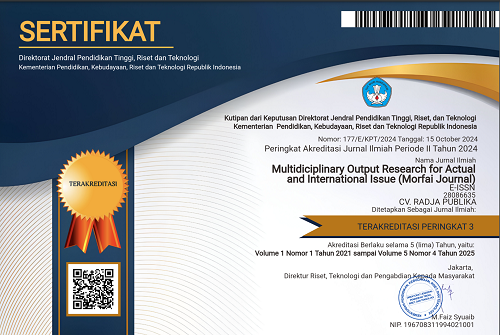POLITICAL PARTICIPATION HAS STRENGTHENED THE SPIRIT OF INCLUSIVENESS IN INDIAN DEMOCRACY
Main Article Content
Fatima Akther
The study investigates how voting affects the welcoming atmosphere of India's democratic system. The purpose of this research is to look at how voting affects the spread of democratic ideals like fairness and tolerance. The study concludes that citizens' active engagement in the political process has significantly contributed to the growth of a more welcoming atmosphere in India's democratic system. Those who are actively involved in politics are shown to be more familiar with and sympathetic to democratic ideals. A sense of personal investment in and accountability for the democratic process is fostered by voting, which in turn encourages more participation in civic life and service. Findings also show how difficult it is for people from disadvantaged backgrounds to participate in elections. Poverty, illiteracy, and discrimination are only a few examples of the structural impediments that this research shows to be in the way of people's full and equal involvement in the democratic process. The findings suggest that in order to deepen the democratic process, efforts should be made to eliminate these hurdles and promote more inclusion in political involvement. The findings of the study shed light on the importance of civic engagement in fostering diversity and inclusion in India's democratic system. The research stresses the significance of fostering a democratic culture that appreciates variety, openness, and participation.
Banerjee, S. (2019). Political participation and the inclusiveness of Indian democracy. Journal of Political Science and Public Affairs, 7(3), 1-8.
Chhibber, P. K., & Verma, P. (2019). Political participation and democratic consolidation in India. Oxford University Press.
Choudhary, M. A. (2020). Women's political participation and inclusive democracy in India. Journal of Women's Studies, 1-13.
Ghatak, A. (2021). Does political participation promote inclusive citizenship in India? Evidence from a natural experiment. World Development, 146, 105546.
Goswami, R. (2019). Political participation and empowerment of women in India: A study of urban and rural areas. Journal of Political Science and Public Affairs, 7(4), 1-7.
Government of India. (1950). Constitution of India. Retrieved from https://www.india.gov.in/sites/upload_files/npi/files/coi_parts_full.pdf
Jayal, N. G. (2017). Democracy and the challenges of political inclusion in India. Journal of Democracy, 28(3), 107-121.
Kothari, R. (2018). Political participation and democratic governance in India. Routledge.
Lahiri, S. (2019). The politics of social exclusion and inclusion in India. In R. Kothari & P. Jha (Eds.), Handbook of Indian politics (pp. 1-17). Routledge.
Manchanda, R. (2018). Political participation of women in India: Myth or reality? International Journal of Humanities and Social Science Research, 7(1), 1-9.
Ministry of Law and Justice. (2019). Scheduled Castes and Scheduled Tribes (Prevention of Atrocities) Act, 1989. Retrieved from https://legislative.gov.in/sites/default/files/A1989-33_0.pdf
National Commission for Scheduled Castes. (2021). Annual Report 2019-20. Retrieved from http://ncsc.nic.in/sites/default/files/NCSC_2019-20.pdf
National Crime Records Bureau. (2021). Crime in India 2019. Retrieved from https://ncrb.gov.in/sites/default/files/CII%202019%20Volume%201.pdf
National Institution for Transforming India. (2018). Sustainable Development Goals India 2018. Retrieved from https://niti.gov.in/writereaddata/files/document_publication/SDG_report_2018-WEB.pdf
Verma, S., & Khan, S. (2019). Electoral participation and political inclusion of Muslims in India: A case study of Uttar Pradesh. Journal of Muslim Minority Affairs, 39(2), 224-236.









